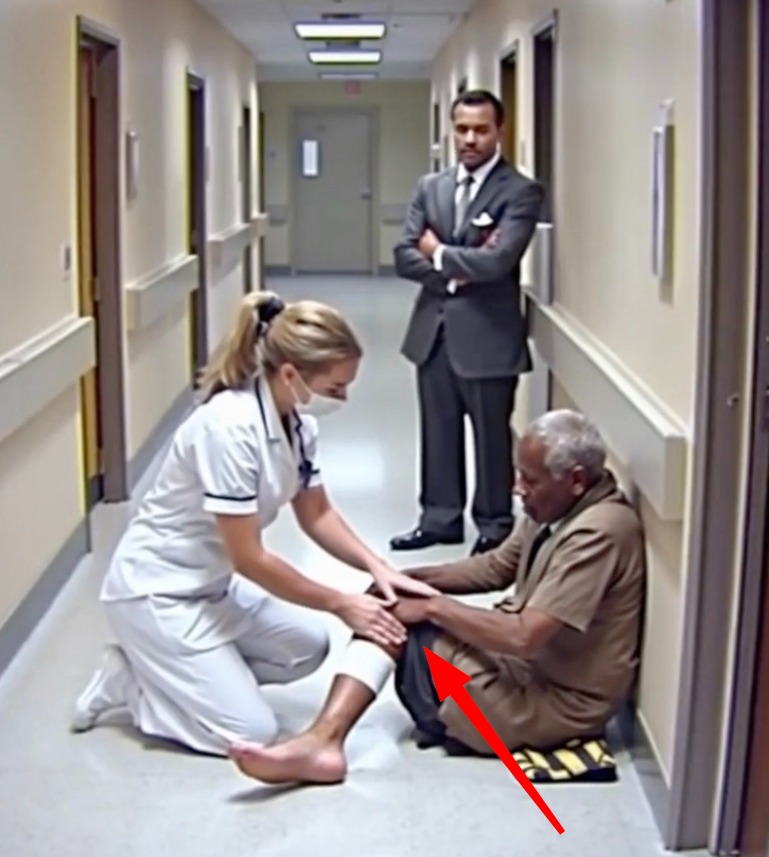
Clare Morgan watched Richard Hail’s back as he walked away, leaving a stunned silence in his wake. The other staff members avoided her gaze, some whispering among themselves, others looking on with a mix of admiration and fear. Clare’s heart sank, not for herself, but for Walter, who sat silently on the edge of the examination table, unaware of the commotion he had inadvertently caused.
The news of Clare’s suspension spread quickly through Riverside General Hospital, reaching the ears of patients and staff alike. Most who heard the story were torn—on one hand, rules were rules, but on the other, Clare’s actions resonated deeply with those who understood the human side of healthcare.
As Clare gathered her belongings, ready to leave the hospital, she felt a hand on her arm. It was Walter, his eyes filled not with anger or regret, but gratitude. “Thank you,” he murmured, his voice cracking. “You did more than just clean a wound. You reminded me that I matter.”
Clare nodded, her throat tight with emotion. She wanted to say more, but the words evaded her. She smiled weakly and turned away, determined to fight for her right to care for patients like Walter in whatever way she could.
That same evening, a black sedan pulled up to the hospital’s entrance. Out stepped General Thomas Howard, a four-star general with a formidable presence. His visit was unannounced, and his destination was clear: the administrator’s office. News of his arrival spread like wildfire, raising eyebrows and stirring curiosity among the staff.
Richard Hail was caught off guard when General Howard entered his office unceremoniously. The general’s reputation preceded him—a man known for his advocacy for veterans and his uncompromising integrity.
“Mr. Hail, I understand you’ve suspended Nurse Clare Morgan,” General Howard began, his voice calm yet commanding. “She treated a veteran who had nowhere else to turn.”
Hail straightened, trying to maintain his authority. “General Howard, we have policies for a reason. This is a hospital, not a charity.”
The general’s eyes narrowed. “That man she treated is Walter Briggs. He served under me in two tours. He’s a hero, and like too many others, he’s fallen through the cracks.”
Hail’s expression faltered as the weight of the situation began to dawn on him. “I…I didn’t realize…”
General Howard continued, “Clare Morgan did what any compassionate human being would do. She upheld the values that people like Walter fought for—values this hospital should be proud to represent.”
The conversation rippled through the hospital, igniting discussions about policy versus compassion. Within days, the story reached the local media, creating a groundswell of support for Clare and a call to action for the hospital administration.
In response, Riverside General announced a new initiative to provide care for uninsured veterans, ensuring that those who served would never be turned away again. Clare’s suspension was lifted, and she returned to her post, greeted with applause and gratitude from her colleagues.
Walter Briggs became a symbol of the change, his story highlighting the urgent need for reform. And Clare Morgan remained at Riverside General, her resolve stronger than ever, knowing that sometimes, it only takes one person to stand up to change an entire system.